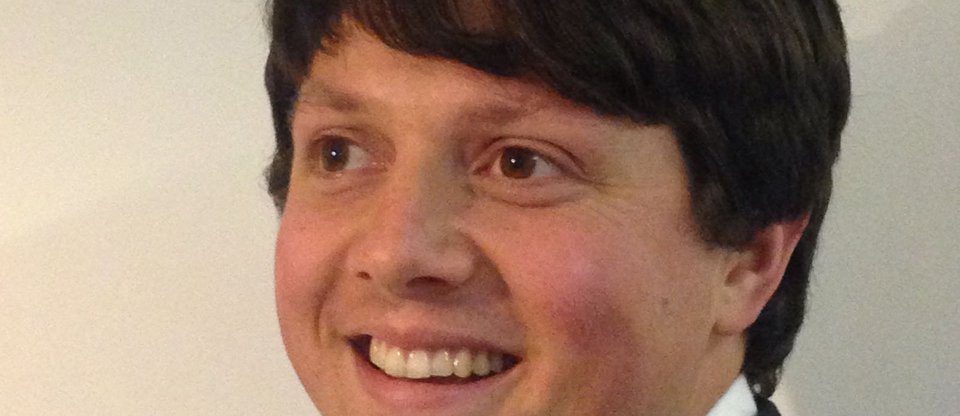Do you want to learn more about being a Community Organiser ?
“Nice people made the best Nazis. My mom grew up next to them. They got along, refused to make waves, looked the other way when things got ugly and focused on happier things than “politics.” They were lovely people who turned their heads as their neighbours were dragged away. You know who weren’t nice people? Resisters."
The author Naomi Shulman.

I work for community charity Citizens UK as the Waltham Forest and Redbridge Organiser. We are an alliance of 10 faith and education organisations, including Faizan-I-Islam, in Waltham Forest. Citizens has 400 member organisations in 11 cities UK-wide. Our mission is to revive the tradition of organising in the UK embodied by the slavery abolitionists, the suffragettes and the unionists, by strengthening our institutions to participate effectively in public life.
We live in challenging times. We have seen the normalisation of nasty politics, which has created the political environment in which terror attacks, like that on the Muslim Welfare House in Finsbury Park, could occur. Market culture dominance has led us to accept third rate treatment for poor people, as seen by the Grenfell fire. And our democracy is threatened by our withdrawal from participating in building the politics of a common life.
Academic Luke Bretherton says that the politics of a common life occurs when no single tradition of belief and practice sets the norms and conditions of shared speech and action, because different groups are all constantly negotiating what the ‘good life’ looks like.
Why am I invested in this form of politics? I am a Jewish lad from South Africa. My grandmother was a Latvian refugee who fled to South Africa as a seven-year-old child in the 1930s because of antisemitism. Her grandmother, Chaisha, was then killed by the Nazis.
My community learns two diametrically opposed lessons from the Holocaust. One group of Jews says we can never trust anyone who is not Jewish because everyone is antisemitic. Therefore, we can only rely on one another.
The other group says, no, the Holocaust is what happens when democracy breaks down. This group, into which I fall, believes that we are all safer in a society that protects minorities, be they Jews, Muslims, Sikhs or gay people. Jews are safest in societies where all people are respected, because, when one minority is attacked, so too will Jews be.
So, how to effectively build the politics of a common life?
We need at least 3 things.
First, personal courage . It is not easy to stand up to challenge members of our own community and a prevailing culture that says ‘people who are different to me are suspicious’. In building the politics of a common life, it is not good enough just to be nice to one another. It takes personal and communal courage to work together in political life, especially when people who are different to us are threatened.
Second, we need strong relationships between different groups.
On the Sabbath, Jews often sing this song called ‘Hineh Matov’ from Psalm 133. It goes ‘Hineh Matov Umanayim, Shevet Achim Gam Yachad’. Which translates as ‘Behold, how good and how pleasant it is for brethren to dwell together in unity’. Sing the song!
This Jewish song hints at the importance of what the Greeks call ‘philia’ – political friendship, a necessary requirement for different people to participate in democratic life together. But how to do develop philia ? By getting to know people who are different to us. Exactly what we are doing now through conversation and fellowship.
But it is not enough to have personal courage and strong relationships.
Lastly, we need to act together. It is only the ability to take effective action that can challenge ‘nasty politics’ and the dominance of the market.
Which is why we, in Waltham Forest Citizens, are listening to 700 people from our member organisations before the local government elections in May 2018 to find out what is putting pressure on them and their families.
We will then build an agenda of our 3-4 key issues and hold an assembly of 500 people in April 2018, to which the politicians seeking to be Leader of Waltham Forest Council will be invited. We will ask them to commit to our agenda, and then hold them to account over the next four years. It is through this method of politics that I have helped to win £50 million of new affordable housing in Redbridge.
Conclusion
Building the politics of a common life is not easy. There will be tension because we are 10 different faith and education organisations. But, that is what is so powerful. It is precisely because the leaders of Waltham Forest Citizens are different, but committed to one another, and to changing the borough for the common good, that we will work together to win the changes our people so badly need.
You are all invited to join us at our Assembly in April next year to bring local democracy alive.




